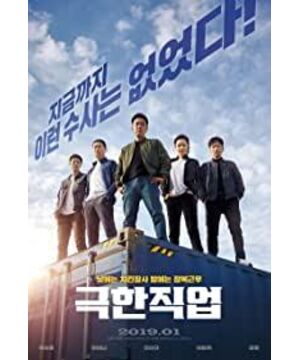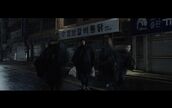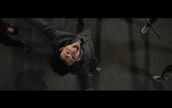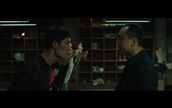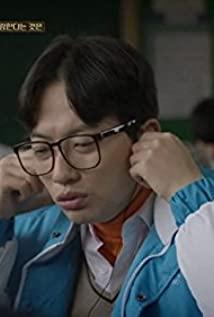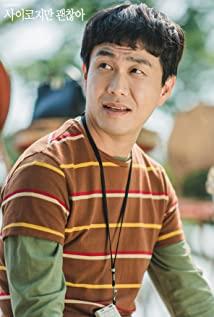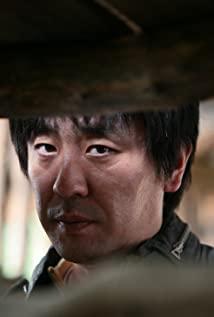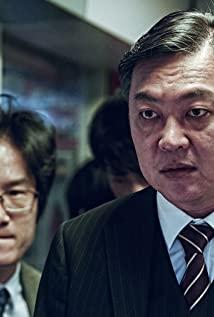"Extreme Profession" tells the story of a team of unreliable police detectives operating a fried chicken shop in order to track down a drug case. Now with 16.1 million movie viewers, it has become the runner-up in the Korean film history box office, second only to "Naruto Shippuden".
This was once a China-Korea co-production project, but it could not be realized due to various reasons. The domestic film "Lobster Detective", which used this as the script, was released last year, and the box office reputation was mediocre.
What the hell is this fat? With the same script, what is the difference between our commercial film?
First, let us rule out the crayfish problem.
(Spoilers below)
I think that the nationality of fried chicken in Korea and crayfish in Korea is quite high, and they are also very suitable for delivery. It can be said that it is a perfect drug delivery chain.
They are all delicious again~
So it's not about crayfish. (But the lobster did not have any appetite, and it was dry) (not round at all) (pan him)
But this pot is not for crayfish either. The first issue should be the polishing of the script.
I guess irresponsibly, the initial script should be a summary of the story, which only determined the plot direction and lacked detailed lines. Otherwise, there is no way to explain why there is such a big gap between the two in the laugh point setting. Whether it is the novelty of the baggage or the relevance to the plot, "Extreme Career" is even better.
This is also a big killer for this kind of commercial film.
That is to say, a comedy drama film produced by the stream, where the laughter is the selling point. The "Big Shot" released some time ago, also starring Wang Qianyuan, was a remake of the South Korean film "Veteran". Although the casting of Bell is incomparable with the original film, and the plot is routine, but with the basic laughter of the original one-to-one, after the release, he can even get a passing score and box office in China.
Back to "Extreme Profession" and "Lobster Detective".
From the first episode, the protagonist team appeared on the stage, I believe the audience of "Extreme Profession" will fall into laughter. And get basic characters in short fights and chases.
The image of the team leader who is afraid of losing money, the little policewoman who talks, and the novice policeman who is hyperactive are all on the paper... and they create laughter through the contrast between imagination and reality.
The suspect's imaginary policeman: enters through a broken window, act quickly
Actual police: I'm afraid of breaking the glass and hanging outside the building~
Results of follow-up actions: The glass was not broken, but the car rear-ended more than a dozen cars in a row.
Fresh and fit. Advanced and long-lasting. The situation has changed many times in one plot, and the stubbornness is long.
What is "Lobster" doing at this time? The police captain pretended to be a takeaway and performed the task smoothly. There is no character, the smile is hard.
The burden of the entire "Lobster" is the ethical, dialect and urinary stalks that cannot be escaped by some domestic comedies. These things are not illustrated by examples. Not only are they useless in the plot, but they can never become classic jokes on their own.
The plot continues to advance to the main line. Regarding why the protagonist has a fried chicken/lobster shop, the Korean version of "Xtreme" is much more reasonable than lobster.
The Xtreme team experienced stalking outside and was disturbed. After observing for many days in the fried chicken shop, it was discovered that the boss wanted to change hands. After waiting for the process, he took the initiative to think about the fried chicken shop and conducted internal discussions before finally deciding to start. And they are faced with the situation that they may not be able to continue without the storefront task.
The Lobster Squad, on the other hand, stalked at the door, because they were asked by the villain, pretending to go to buy the store, out of chance (strong buying and selling), they ordered the store.
The gap is too big. Plots such as the lobster are basically handled in such a rough way. If they can't find a reason, they start to push forward, and the protagonist starts to passively find a reason if they don't know the motivation.
For example, the Korean version of the young policeman took the initiative to pay (own money) to help the team leader get the storefront, and the domestic version of the team leader forcibly took money (relatives) from the young policeman...
The line between actual black humor and selling stupid coincidence is difficult to grasp. After reading "Limit", I feel that the degree of completion is not bad, and there are not no logical problems, but it is still much more detailed than the domestic version. In the production of genre films where artistry and depth are not demanded, the details are not looked at, what else should be measured and compared.
If the lobster is a little better than the limit, it is the rhythm.
The 90-minute film length of "Lobster" is compared with the 130 minutes of "Extreme". First, a police member was drastically cut off, the captain's family line was cut off, and a short, flat and fast route was taken. I think this kind of thinking is also possible, that is, from the beginning to the end, all the way to the end. But there are also some inexplicable episodes, such as the policewoman's sudden self-consciousness swelling through the flamboyant gestures, being pointed out by a straight male teammate. For example, the ambiguous pink bubble between the police chef and the customer. I kept sending out nani while watching the movie? Is it necessary? These plots are not only invalid and wrong, but also harm the characters. Or it can't be said to be damage, it is simply inexplicable. The Korean version follows the line of tender little people inherent in their country. Family talks, career talks, team relations talks, and finally hits like a Hong Kong movie, and it's the end. It's quite long, but it's not a grind. Except for the last long play, arranging intensive laughter attacks at other times, so that the plot is not slow.
In addition to the male and female protagonists, he also created a very brilliant supporting role, coexisting brave, reckless and stupid.
In addition, in "Extreme", the familiar scene of drug dealers staring at the chain of fried chicken shops as the drug delivery network, really surprised the loyal viewers of "Breaking Bad" and screamed on the spot!
It's the best American drama in my heart. It's the familiar condiment barrel that hides drugs, and it's a familiar drug mask! Ah ah ah! Although there is only one lens, the tone and composition are completely tribute to the classics, and the old fans are full of enthusiasm. Speaking of this, there is another discrepancy in "Lobster". The Korean version of drug dealer Panxia Fried Chicken wants to open a chain store to facilitate the distribution of drugs (the same as our Fried Chicken Uncle).
It was also discovered by the police because the protagonist team was eager to pursue the investigation.
However, until the end of the film, we still don't know why the uncle in "Lobster" had to take the lobster shop opposite the transportation den to make a deal. Contacting the inexplicable ambiguity above, I can only say one thing because of love.
The reason they were discovered by the police was that the male protagonist had a brainstorming idea that they were going to trade in the crayfish shop.
This is the core logic of the climax of the film. It is this part of the collapse that caused the domestic version of the "Lobster Criminal" plot to a total collapse and chaos. The entire scenario where the police opened a restaurant and caught the bad guys by mistake has collapsed.
I think the arc of the characters in the Korean version of "Extreme Profession" is also mentioned in this part. The police captain's career has ceased, and the fried chicken shop has also changed hands to complete. But he still needs to investigate and continue, and he admitted frankly when facing the drug dealer, and then he will never admit defeat like a zombie.
In fact, the movie itself did not do any rendering and enhancement of heroic feelings, but we can all feel this.
This is the most important part I think.
Dividing line-and want to interview the crew of "Lobster" Why is the lighting of the crayfish shop the style of the dance hall in the 1990s? Doesn't it match up with the drug trafficking group on the opposite side if you don't engage in a little neon purple?
There is still a certain gap between the lighting picture and the soundtrack according to the Korean version. I think these are necessary things for a qualified commercial film. In terms of actors, the male captain played by the Korean version of Yoo Seung-long may be preconceived to me. I think his image of police detective loser is quite alive. I was talked about by my wife at home and was not promoted in the company. I worked hard to answer the phone by selling fried chicken. I was not a policeman and I was still chasing after crime.
And our little policeman, played by Wang Qianyuan, always has the tough temperament of a big hero, unlike the middle-aged frustrated man polished in life. Of course, this is also inseparable from the character of the play, the acting is not to be said, and it is quite good with the background of teammates.
The above are several reasons why I think the effects and commercial performance of the two films are different under the same script. It is not that domestic film production is not as good as South Korea. It is just the introduction of a control variable, and then we can try to talk about the other. In the genre film production industry where there is a pattern to follow, find a way to explore progress. South Korean police movies have been super powerful in recent years. The decline of Hong Kong films, many wonderful elements and styles have been absorbed and reused by South Korean directors, and they have also obtained very good results. Films such as "Young Police" and "Big Shot" are all high-quality and self-contained, and can even be exported back in reverse. Mainland remake. So I think this kind of comparison and reflection should be valuable, and it won't be a waste of time and vision for me to read the two parts.
Finish
View more about Extreme Job reviews


